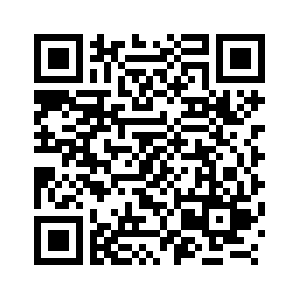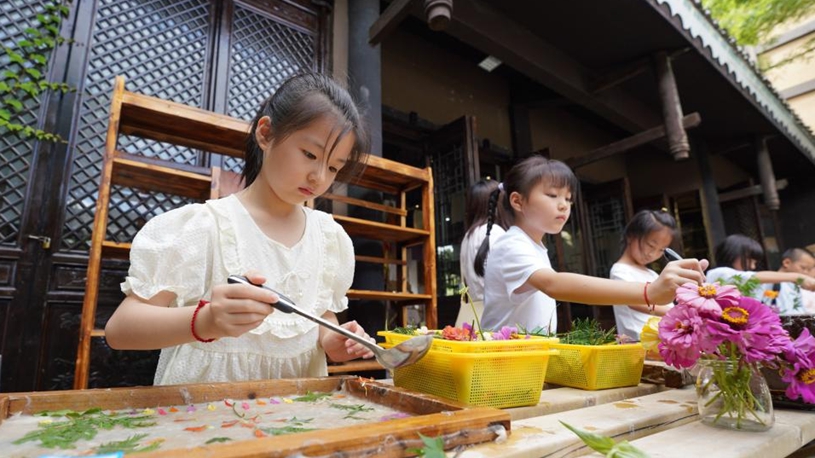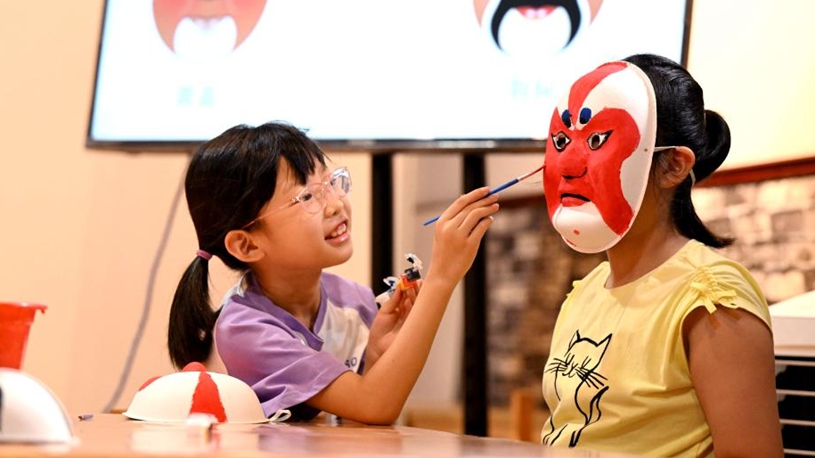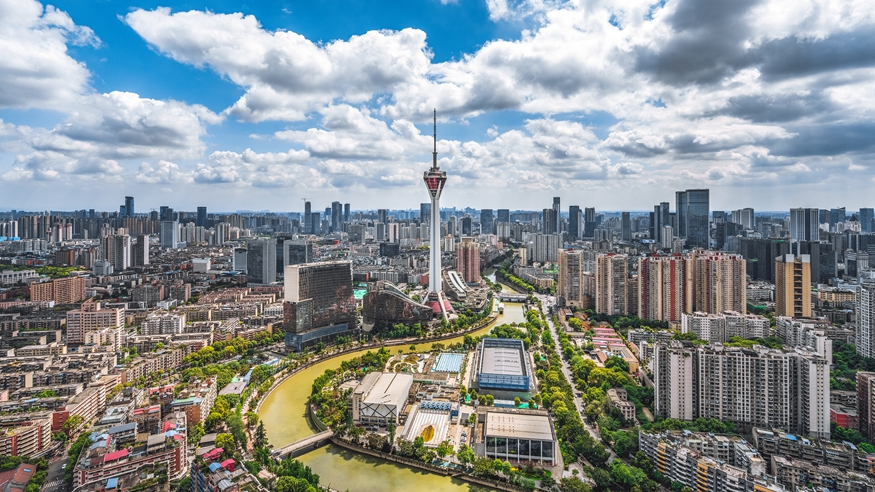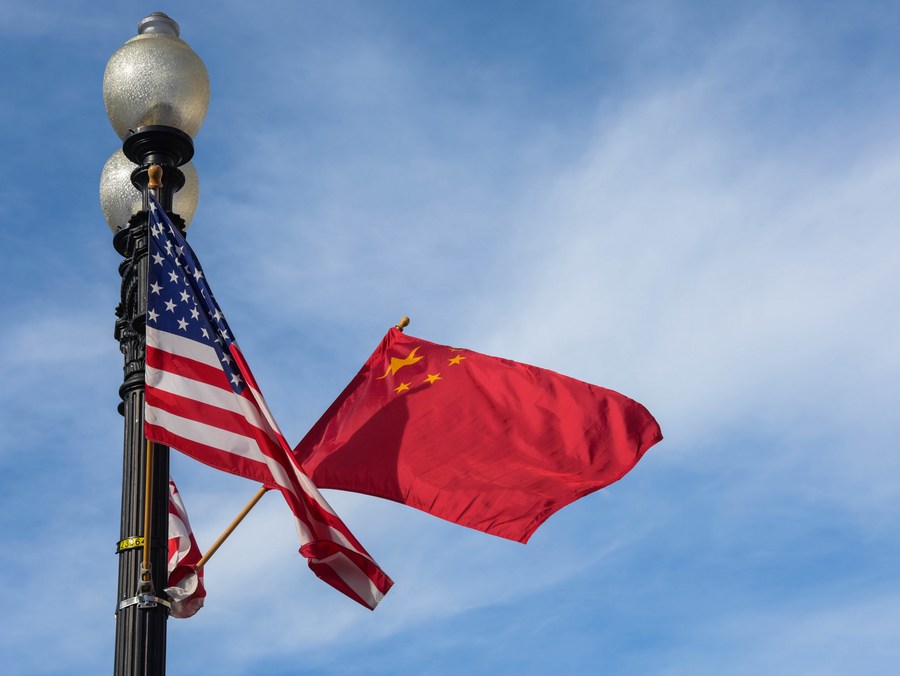
Photo taken on Sept. 24, 2015 shows the national flags of China (R) and the United States as well as the flag of Washington D.C. on the Constitution Avenue in Washington, capital of the United States. (Xinhua/Bao Dandan)
"What worries me about the current period is that we are focusing too much on the rivalry and not enough on the cooperation," U.S. political scientist Joseph Nye told Xinhua.
by Xinhua writer Deng Xianlai
ASPEN, the United States, July 22 (Xinhua) -- The United States and China should set limits for competition and strive to find areas where cooperation is possible, world-renowned U.S. political scientist Joseph Nye said in an interview with Xinhua.
"What worries me about the current period is that we are focusing too much on the rivalry and not enough on the cooperation," Nye said as he sat for an exclusive interview on China-U.S. relations on the sidelines of the Aspen Security Forum held Tuesday through Friday.
Nye is a former dean of Harvard's John F. Kennedy School of Government -- where he now holds the title of dean emeritus. He is widely considered one of the world's most influential scholars in international relations. He is also known for coining the term "soft power."
During the interview, Nye described the current relationship between Beijing and Washington as a "cooperative rivalry." In other words, he said, the two countries are now in a status of "competitive coexistence."
Some aspects of the bilateral ties require the two countries to take a cooperative approach when dealing with one another, Nye said.
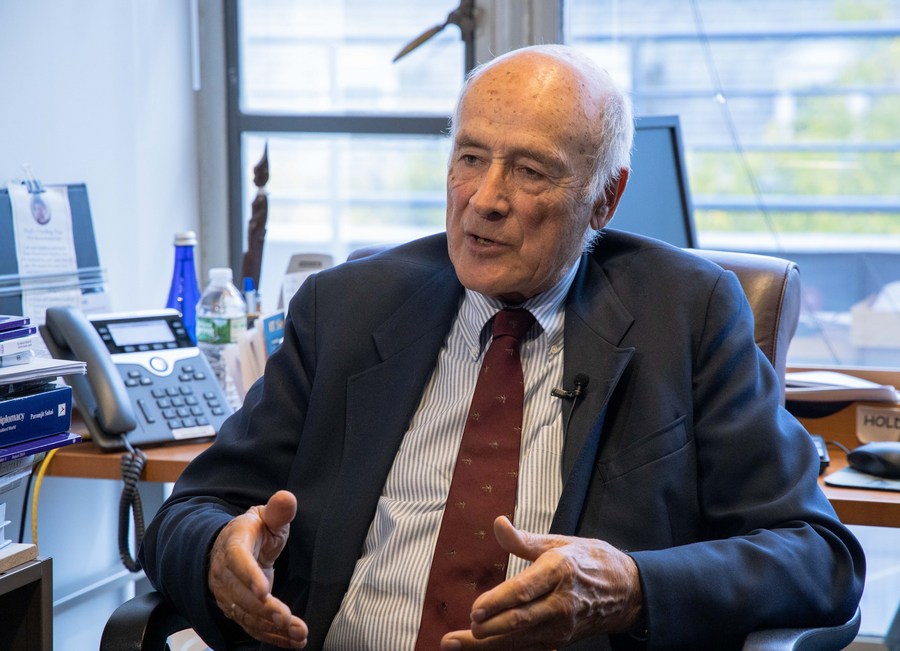
Joseph Nye, an influential scholar in international relations and policymaking, speaks in an interview with Xinhua at Harvard University in Massachusetts, the United States, Oct. 8, 2019. (Xinhua/Xie E)
"The U.S. and China are not an existential threat to each other," Nye said, adding that both countries are "too big" for either one to "change or invade" the other. "In that sense, we need to think of a framework which sets limits on the competition and also (enables the two sides) to look for areas where it's possible to have cooperation."
"Basically, managing competition means working with each other to say what is too much, what is not a big threat, and to work through this," he added.
Nye said managing China-U.S. relations, which have been in decline for more than a decade, will require more contacts than the two countries have had since U.S. President Joe Biden took office two years ago.
"That's why I thought the decision by President Xi (Jinping) and President Biden at Bali to restore more contacts at a high level was very important," he said.
U.S. Secretary of State Antony Blinken, Treasury Secretary Janet Yellen and Special Presidential Envoy for Climate John Kerry made back-to-back visits to Beijing in recent weeks, which Nye said were "absolutely" important but nonetheless "can't change the relationship overnight."
Nye said that the ups and downs in China-U.S. relations have followed a cyclical pattern since 1949, with each cycle lasting roughly 20 years. "We are 10 years into a difficult period. You don't turn that around in just a few visits, but I think over a longer period, we should be able to turn it around."
Regarding the agreement between the two countries to resume people-to-people exchanges involving businesses, students and scholars, as well as increase direct flights to facilitate those exchanges, Nye commented, "these are first steps in the right direction," without which the many thornier problems will be harder to solve.
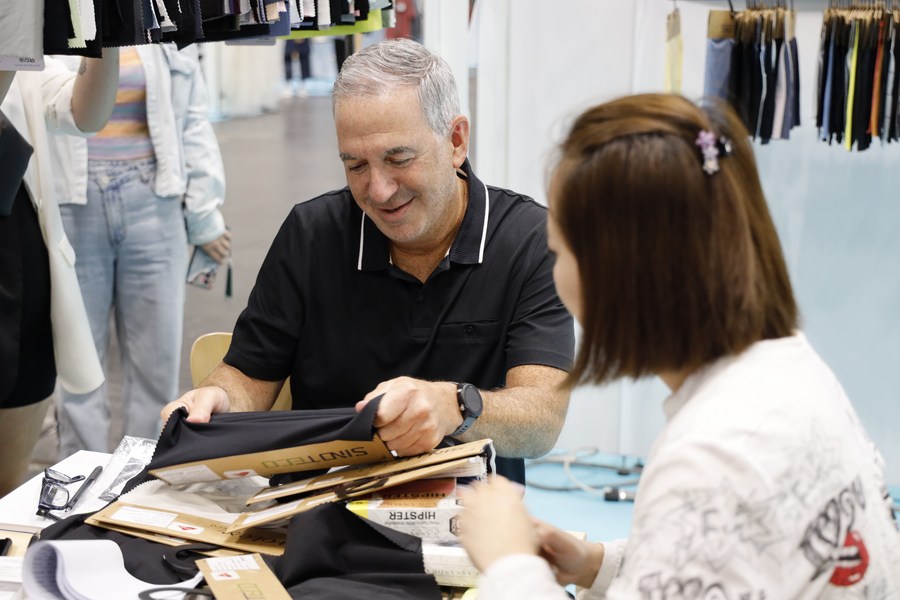
A client (L) selects fabric at a booth of an enterprise from China's Shanghai during the 24th China Textile and Apparel Trade Show in New York, the United States, on July 19, 2023. (Xinhua/Xie E)
"It's also important that for symbolic purposes, we develop some areas where we can educate our publics that there is something we can gain from cooperation," Nye said, mentioning such areas as combating climate change, addressing drug trafficking, maintaining the stability of the world economy and safeguarding the nuclear non-proliferation regime.
"If all the discussion in Beijing and in Washington is about how the other country is a threat, (the narrative) becomes reinforcing," Nye said. But if "we show cooperation, that begins to change the climate of ideas in Washington and Beijing."
Beginning in 1964, Nye's teaching and research career at Harvard was interrupted by two relatively brief periods of government service. He was deputy undersecretary of state for security assistance, science and technology from 1977-79, and between 1993 and 1995, he served first as chairman of the National Intelligence Council and then as assistant secretary of defense for international security affairs.
Nye said that as both "large and successful countries," China and the United States "are going to have to live with each other for as long as we can" and that there will never be such a "victory in which one side wins over the other."
"Victory will mean that we both avoid a violent conflict," he said. "That's a victory for both."■
